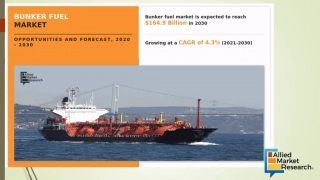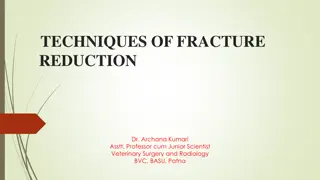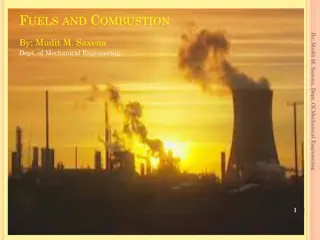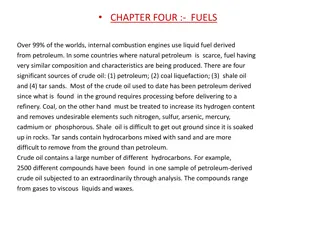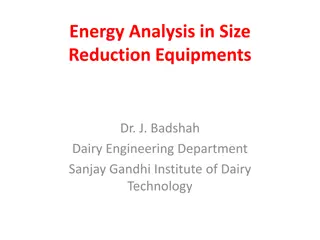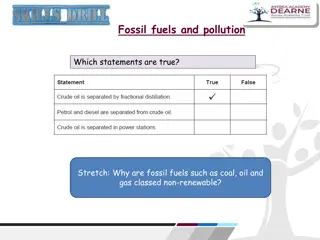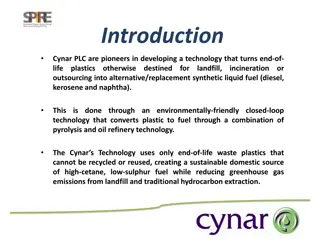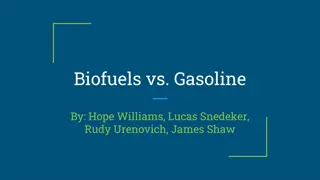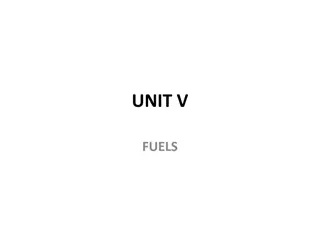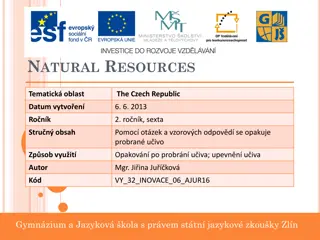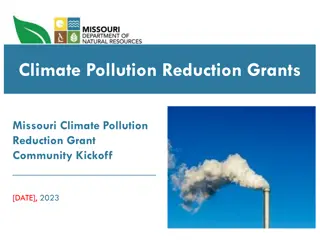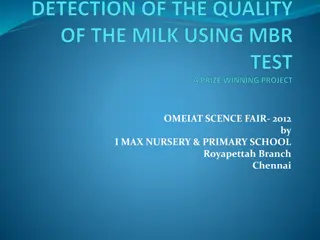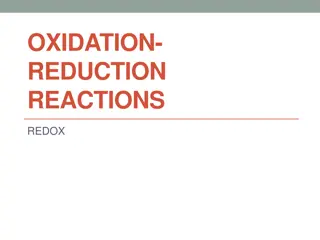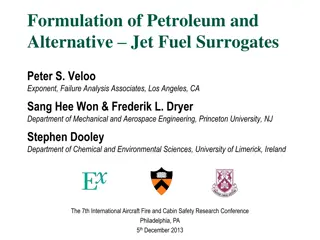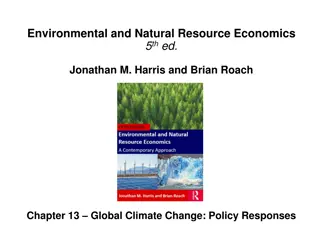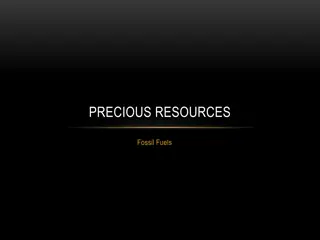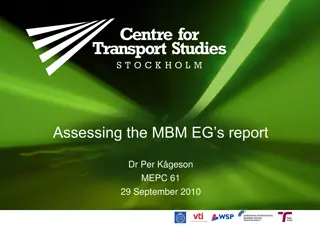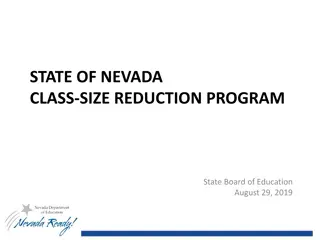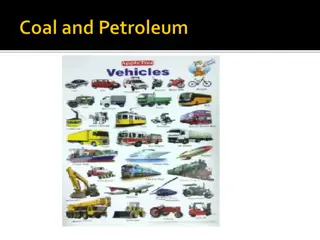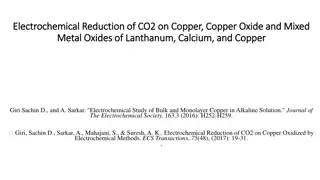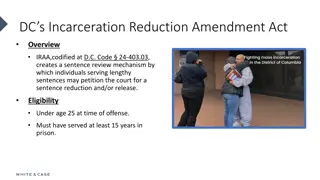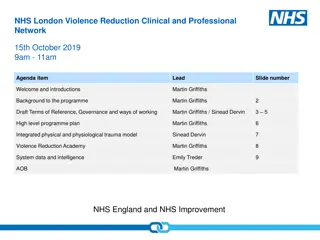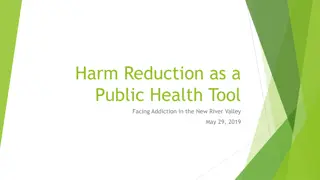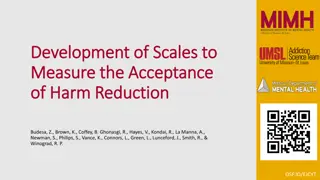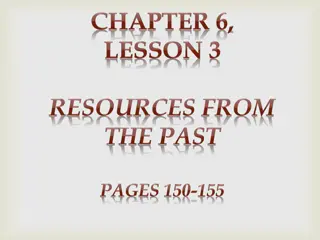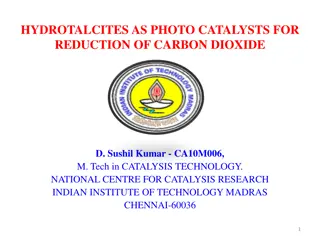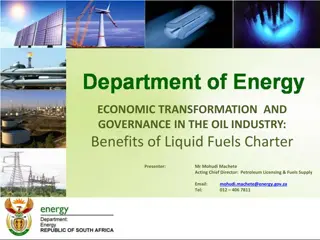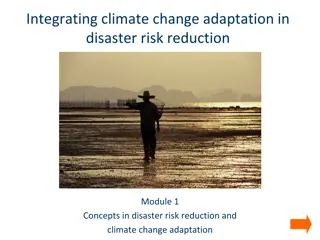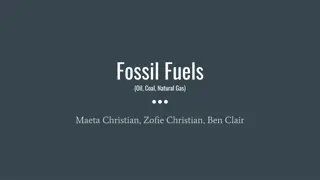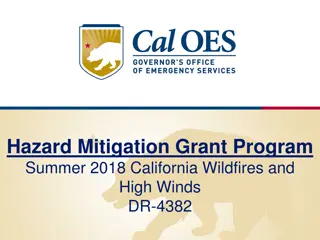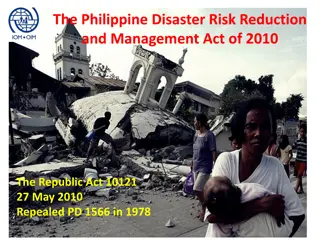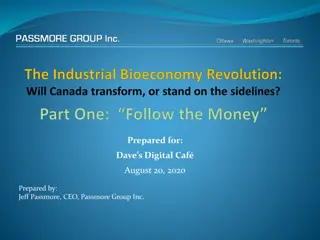Bunker Fuel Market
Bunker fuel is a fuel oil used in marine vessels. It is poured into the ship bunkers to keep the engines running. Ships use three types of marine fuels, which include high sulfur fuel oil, low sulfur fuel oil, and diesel oil. Presently, growth in awareness toward reducing environmental pollution and
2 views • 6 slides
Bunker Fuel Market
Bunker fuel is a fuel oil used in marine vessels. It is poured into the ship bunkers to keep the engines running. Ships use three types of marine fuels, which include high sulfur fuel oil, low sulfur fuel oil, and diesel oil. Presently, growth in awareness toward reducing environmental pollution and
1 views • 6 slides
Bunker Fuel Market
Bunker fuel is a fuel oil used in marine vessels. It is poured into the ship bunkers to keep the engines running. Ships use three types of marine fuels, which include high sulfur fuel oil, low sulfur fuel oil, and diesel oil. Presently, growth in awareness toward reducing environmental pollution and
6 views • 6 slides
Historic Investments in Climate Action: Inflation Reduction Act May 2023
The Inflation Reduction Act (IRA) of May 2023 focuses on making significant investments in climate action to reduce U.S. emissions by an estimated 40% by 2030. This act supports disadvantaged communities, the clean energy industry, and aims to drive emissions reductions over the next decade while pa
5 views • 14 slides
Harm Reduction in Addiction Psychiatry: A Comprehensive Overview
Harm reduction in addiction psychiatry is a client-centered approach that focuses on reducing negative consequences associated with substance use. This philosophy involves practical strategies and principles aimed at promoting safer drug use practices. The historical background traces the evolution
1 views • 40 slides
Techniques of Fracture Reduction in Veterinary Medicine
Explore the techniques of fracture reduction in veterinary surgery, including closed reduction and toggling method, explained by Dr. Archana Kumari. Learn about the advantages of closed reduction, indications for treatment, and the step-by-step technique involved in reducing fractures in animals. Di
0 views • 14 slides
Exploring Fuels and Combustion in Mechanical Engineering
This content delves into the intricate world of fuels and combustion, discussing classifications, properties, and origins of various fuels such as solid, liquid, and gaseous. It covers the importance of desirable fuel properties, caloric values, and the different types of natural and artificial fuel
0 views • 34 slides
Understanding Fuels and Their Sources
Fuels derived from petroleum, coal, shale oil, and tar sands are crucial for powering internal combustion engines. Crude oil contains various hydrocarbons requiring refining processes to obtain products like natural gas, gasoline, kerosene, diesel oils, fuel oils, and lubricating oils. The chemical
1 views • 7 slides
Understanding Energy Analysis in Size Reduction Equipments
This comprehensive overview delves into the energy analysis involved in size reduction equipment, exploring topics such as objectives of size reduction units, sieve analysis for particle size distribution, mesh number system, and mathematical models for energy analysis in size reduction units. Dr. J
0 views • 11 slides
Understanding Fossil Fuels and Pollution: A Comprehensive Overview
Fossil fuels such as coal, oil, and natural gas are non-renewable energy sources that release heat energy when burned, but also contribute to pollution when not burned completely. This leads to the release of harmful pollutants like carbon dioxide, carbon monoxide, sulfur dioxide, and carbon particu
2 views • 9 slides
Innovative Fuel Technology by Cynar PLC: Converting Plastic Waste into Sustainable Fuels
Cynar PLC pioneers technology converting end-of-life plastics into synthetic liquid fuels, reducing landfill waste and greenhouse gas emissions. Seeking partners for future fuel development and renewable energy projects. Advanced discussions with potential collaborators. Opportunities to combine alt
0 views • 5 slides
Pros and Cons of Biofuels in Comparison to Gasoline
Biofuels, renewable liquid fuels made from biomass, have various environmental and socio-economic benefits over gasoline. They can replace fossil fuels, reduce greenhouse gas emissions, create jobs, boost economies, and utilize common wastes efficiently. However, challenges like production costs, su
1 views • 11 slides
Understanding Fuels and Their Classification
Fuels are combustible substances that serve as a source of heat or raw material for various industries. They can be classified as natural or artificial, solid, liquid, or gaseous, and primary or secondary fuels. Primary fuels like coal and wood are directly used for heat, while secondary fuels are m
4 views • 88 slides
Understanding Energy Conversion in Steam Engines
Explore the energy conversion processes in steam engines, learn about fossil fuels like coal, oil, and natural gas, and discover the composition of fossil fuels. This lesson covers the operation of steam engines, energy changes, advantages, and disadvantages, providing a comprehensive overview of en
2 views • 14 slides
Natural Resources and Mineral Deposits in the Czech Republic
The Czech Republic's natural resources include renewable sources like sun energy and water, as well as non-renewable resources such as mineral deposits and fuels like black coal and oil. The country has rich non-metal deposits and varied metal deposits. Mineral deposits are abundant, with significan
0 views • 8 slides
Volkswagen Trust Climate Pollution Reduction Grants Missouri Community Kickoff
Volkswagen Trust Climate Pollution Reduction Grants are part of the Inflation Reduction Act, aiming to reduce greenhouse gas emissions. The grant breakdown includes $250 million for planning grants and $4.6 billion for plan implementation. Missouri's Department of Natural Resources is leading the pl
1 views • 18 slides
Methylene Blue Reduction Test for Milk Quality Assessment
The Methylene Blue Reduction (MBR) test is utilized to assess the quality of milk based on the reduction of color imparted by a dye. The disappearance of color indicates the presence of bacteria in milk. This test involves adding methylene blue dye to milk samples, observing the color change, and me
0 views • 20 slides
Understanding Oxidation-Reduction Reactions in Chemistry
Explore the concept of oxidation and reduction in chemistry, which are fundamental processes that occur simultaneously in oxidation-reduction reactions. Learn about the role of oxygen, different types of oxidation reactions beyond burning, such as bleaching stains, and the concept of reduction invol
0 views • 34 slides
The Evolution of Alternative Fuels in Addressing Energy Security
Amid historical warnings of overdependence on foreign oil, this piece emphasizes the importance of exploring alternative fuels to ensure energy security. With a focus on real-time solutions and the potential of existing technologies, the narrative underscores the urgency of transitioning away from t
0 views • 23 slides
Advances in Aviation Fuel Surrogates and Computational Modeling
This study explores the formulation of petroleum and alternative jet fuel surrogates, coupling chemical kinetics with computational fluid mechanics for engine design, and the variability of aviation fuels. It delves into the concept of surrogate fuel models, previous research on jet fuel surrogates,
0 views • 20 slides
Policy Responses to Global Climate Change: Alternative Carbon Taxes and Impacts on Fossil Fuels
The chapter discusses the implementation of alternative carbon taxes on fossil fuels and their effects on retail prices of gasoline, coal, and natural gas. It provides insights into the impact of carbon pricing on emissions, retail prices, and consumption patterns, emphasizing the importance of carb
0 views • 15 slides
Unveiling the World of Fossil Fuels: Coal Formation and Usage
Exploring the formation of fossil fuels, particularly coal, from ancient plant remains buried under the Earth's surface over millions of years. Learn about the transformation process from peat to brown and black coal, and how coal is utilized as a valuable fuel source for electricity generation and
0 views • 16 slides
Maritime Emissions Reduction Strategies and Policy Instruments Overview
Assessment of the Expert Groups' reports on maritime emissions reduction strategies, emphasizing the need for multiple policy instruments targeting new ships, existing ships, and operational aspects. Discusses the negative side effects of flexible policies and the importance of imposing requirements
1 views • 23 slides
Nevada Class-Size Reduction Program Overview
The Nevada State Board of Education implemented the Class-Size Reduction Act to reduce pupil-to-teacher ratios in early grades. Research shows mixed results on the effects of class-size reduction, with studies from various states highlighting different outcomes. The history of class-size reduction r
0 views • 14 slides
Understanding Fuels and Their Uses
Fuels are substances that release energy when burned, such as coal, petroleum, and natural gas. They are used in transportation, cooking, heating, electricity production, and industrial processes. Good fuel characteristics include being economical, easily available, non-toxic when burned, high heat
0 views • 9 slides
Electrochemical Reduction of CO2 on Copper and Mixed Metal Oxides
Different methods for CO2 reduction have been studied, with electrochemical reduction showing promise due to its use of electricity from nonconventional sources. Research on copper's unique characteristics for producing various CO2 reduction products has led to investigations into optimizing activit
0 views • 30 slides
DC's Incarceration Reduction Amendment Act Overview
The DC's Incarceration Reduction Amendment Act (IRAA) provides a mechanism for individuals under the age of 25 at the time of offense, who have served at least 15 years in prison, to petition for sentence reduction or release. This Act is based on key US Supreme Court cases relating to the Eighth Am
0 views • 7 slides
NHSL Violence Reduction Clinical & Professional Network Overview
The NHSL Violence Reduction Clinical & Professional Network aims to address the high number of violent incidents in London through a public health approach. Led by Martin Griffiths, the network provides a forum for clinicians and professionals to share expertise, offer strategic leadership, and supp
0 views • 9 slides
Utilizing Harm Reduction for Addressing Addiction in New River Valley
In this presentation, Michael E. Kilkenny discusses the importance of harm reduction as a public health tool in combating addiction issues in the New River Valley. The talk highlights the benefits of harm reduction, components of successful implementation, and measures of program success. It also ad
0 views • 20 slides
Development and Evaluation of Harm Reduction Acceptance Scales
Development of scales to measure the acceptance of harm reduction is crucial for understanding public attitudes towards harm reduction strategies. This project focuses on creating valid and reliable scales through a systematic process involving item development, data collection, analysis, and refine
0 views • 15 slides
Understanding Fossils and Fossil Fuels
Explore the world of fossils and fossil fuels, learning how they are formed and what they reveal about Earth's history. Discover the various types of fossils, from imprints to whole organisms preserved in amber. Uncover the importance of fossils in studying geological changes over time and understan
0 views • 15 slides
Utilizing Hydrotalcites as Photo Catalysts for Carbon Dioxide Reduction
Burning fossil fuels leads to CO2 emissions, posing a significant environmental challenge. Converting CO2 into valuable hydrocarbons through photocatalytic reduction using solar energy provides a sustainable solution. This process involves multi-electron transfer steps, requiring efficient catalysts
0 views • 24 slides
Economic Transformation in Oil Industry: Benefits of Liquid Fuels Charter
Presentation by Mr. Mohudi Machete on the Petroleum Licensing & Fuels Supply, discussing the legislative mandate, objectives, and impact analysis of the Petroleum and Liquid Fuels Charter (LFC) in the South African oil industry.
0 views • 18 slides
Integrating Climate Change Adaptation in Disaster Risk Reduction Module 1
Welcome to the e-Learning module on integrating climate change adaptation in disaster risk reduction. This module covers concepts in disaster risk reduction and climate change adaptation. It is part of a package that includes five modules focusing on vulnerability, disaster risk reduction, climate c
0 views • 29 slides
Understanding Fossil Fuels: Advantages, Disadvantages, and Impact
Fossil fuels like oil, coal, and natural gas have both advantages and disadvantages. They offer cheap energy with a high power output but contribute to pollution and are non-renewable. The method of processing fossil fuels in power plants is explained, highlighting their impact on the environment an
0 views • 11 slides
Strategies for Decarbonizing Shipping Industry
Infographic series released under CC-BY-NC-ND licensing by UMAS highlight the pathways for reducing greenhouse gas emissions in international shipping. Efficiency measures and transition to renewable energy and zero-carbon fuels are essential to meet the IMO's emission reduction targets. The use of
0 views • 8 slides
Mitigating California Wildfires: Hazard Mitigation Grant Program Overview
The Hazard Mitigation Grant Program (HMGP) aims to reduce loss of life and property from future disasters by implementing long-term risk reduction strategies. The program focuses on creating or updating Local Hazard Mitigation Plans, prioritizing post-wildfire mitigation activities, including soil s
0 views • 18 slides
Enhancing Disaster Risk Reduction in the Philippines
The Philippine Disaster Risk Reduction and Management Act of 2010, also known as Republic Act 10121, replaced PD 1566 and introduced a proactive approach to disaster management, focusing on risk reduction and building community resilience. The new law aims to transform and reform disaster response b
0 views • 26 slides
Integrated Reduction Technique for Double Precision Accumulator
An integrated reduction technique for a double precision accumulator is discussed in the research paper by Krishna Nagar, Yan Zhang, and Jason Bakos from the University of South Carolina. The paper addresses issues related to double precision accumulation in kernels targeted for acceleration, presen
1 views • 25 slides
Challenges and Future of Fossil Fuels in the Global Economy
The world's dependence on fossil fuels is declining, as evidenced by recent actions from major financial institutions and companies shifting away from investments in coal, oil sands, and Arctic drilling. Experts suggest that businesses adapting to a net-zero carbon world will thrive while those resi
0 views • 13 slides


